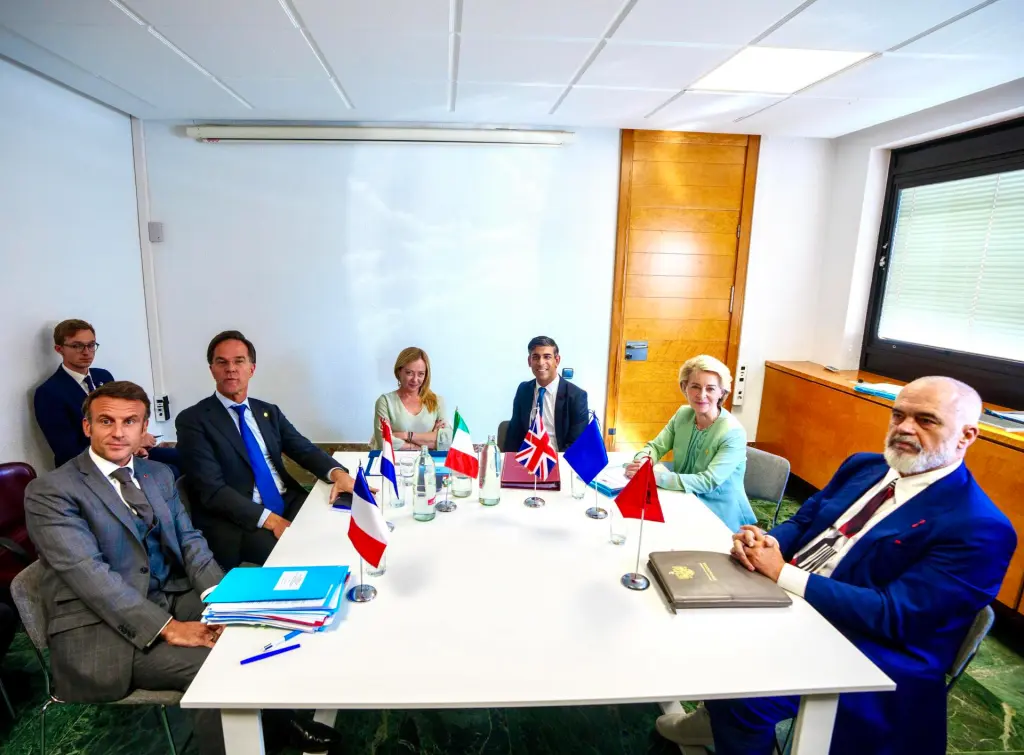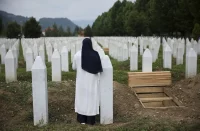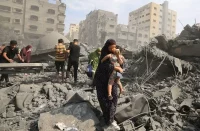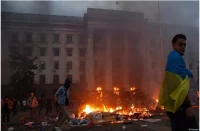The unbounded flow of illegal migrants trying to get to Europe by any means has been a pain point for European politicians for many years now. There is no single solution to this problem. Brussels bureaucrats pace back and forth trying to enter into an agreement with all African countries that share a land or sea border with Europe.
This time, head of the European Commission Ursula von der Leyen and Prime Minister of Spain Pedro Sánchez visited Mauritania, where they met with the President of the country. Why Mauritania specifically? It is from there that most homemade boats depart towards the Canary Islands. As of 2023, for 83% of persons crossing the Atlantic Ocean, the starting point was precisely this West African country. If in 2021 and 2022 the flow of refugees across the Atlantic Ocean decreased significantly, in 2023 it drastically increased again. This is primarily due to the congestion of other routes to Europe.
According to European Union Border Agency Frontex, the total number of people trying to illegally get from West Africa to the Canary Islands and from there to Spain has skyrocketed over the past year. In addition, this creates significant barriers to the traditional industry of the Canary Islands, tourism, which was the basis of the domestic regional product in that part of Spain.
Following the visit, in their joint statement, European politicians announced EUR 210 million worth of support measures to be provided to Mauritania. This is intended to help the African country not only stop the illegal smuggling of people to the Canary Islands but will also create favorable conditions for further raising private investment into various power energy and infrastructure projects. Pedro Sánchez offered more than EUR 300 million in investments on behalf of Spanish businesses. How promising it is to invest into projects in a country where, according to unofficial data, slavery still exists is an intricate question. This EUR 300 million is likely just an unsupported political statement designed to push the President of Mauritania to “take the right step.”

At the meeting with President Mohamed Ould Ghazouani of Mauritania last week, the aforementioned European Union leaders thanked him for his support as part of Mauritania’s efforts to reduce the inflow of refugees into Europe. According to Ursula von der Leyen, the European Union will support Mauritania in training the army to protect the security of the country’s borders in the most challenging areas, mainly in the area where it borders with Mali.
Prime Minister of Spain Pedro Sánchez also did his part, emphasizing that the situation in Sahel was traditionally very turbulent but Mauritania was a bastion of stability and a standard of democracy in the region that is problematic but extremely important for Spain and Europe. Until recently, Spain has followed the following strategy: an EU member would sign an agreement with countries that are the main sources of illegal migration to Spain. Madrid, in turn, would provide migrants who manage to reach the shores of Spain, with jobs in agriculture. That strategy has been in effect for 22 years. The government was able to simultaneously bridge the shortage of personnel in low-paid professions, employ migrants, thus developing its own economy and partially the economy of African states since migrants still send part of the earnings to their native land.
It’s no wonder that the European Union is keen to get a piece of Africa for itself. By investing in African infrastructure, the EU is trying, as far as it can, to edge Russia and China out of this extremely promising market. The funding to be provided for under the agreement with Mauritania is a drop in the ocean for the European Union but quite a big handout for the West African state. How and what this money will actually be spent for is the tenth question for Ursula von der Leyen. The key thing here is how the states in the Sahel region would react from a political perspective. Will they reach out to Europe, seeing that the European Union is willing to provide funding almost free of charge? This is what the main question for this integration block consists in.
However, the policy of sponsoring measures activities aimed at curbing the outflow of people from the African continent is not a panacea. European politicians are realistic about this. This flow of migrants is the result of structural problems faced by African countries themselves and entire Africa needs to change. The change is ongoing, but very, very slowly. In fact, in the long term, it is this approach to address the problem – infrastructure development, cooperation with and training of local law enforcement agencies, providing humanitarian support for the population and raising foreign investment – that is more effective than deportation or a ban on legal entry into EU countries or long-term detention of migrants in camps without any prospects for further life.
In this context, the Pact on Migration and Asylum is an important legal basis that implies the creation of a ‘flexible solidarity’ mechanism. In other words, migrants would be distributed evenly across the EU or the countries would receive monetary compensation for each rejected migrant. The instrument also sets out uniform border control standards. Its adoption in late 2023 was a major step towards curbing migration flows and internal migration in Europe.
The strategy opted for by Madrid and approved by Brussels attests to the fact that the EU has now developed a common understanding of how to counter the flow of migrants from the black continent. At the same time, it is necessary to admit that African countries, for example, the very Mauritania, are skillfully manipulating the situation and trying to squeeze as much money from Brussels as possible. However, the following question remains: how to deal with migrants from Asia? Europe does not border with Asian countries which significantly impedes deportation. This issue remains to be addressed.














Comments